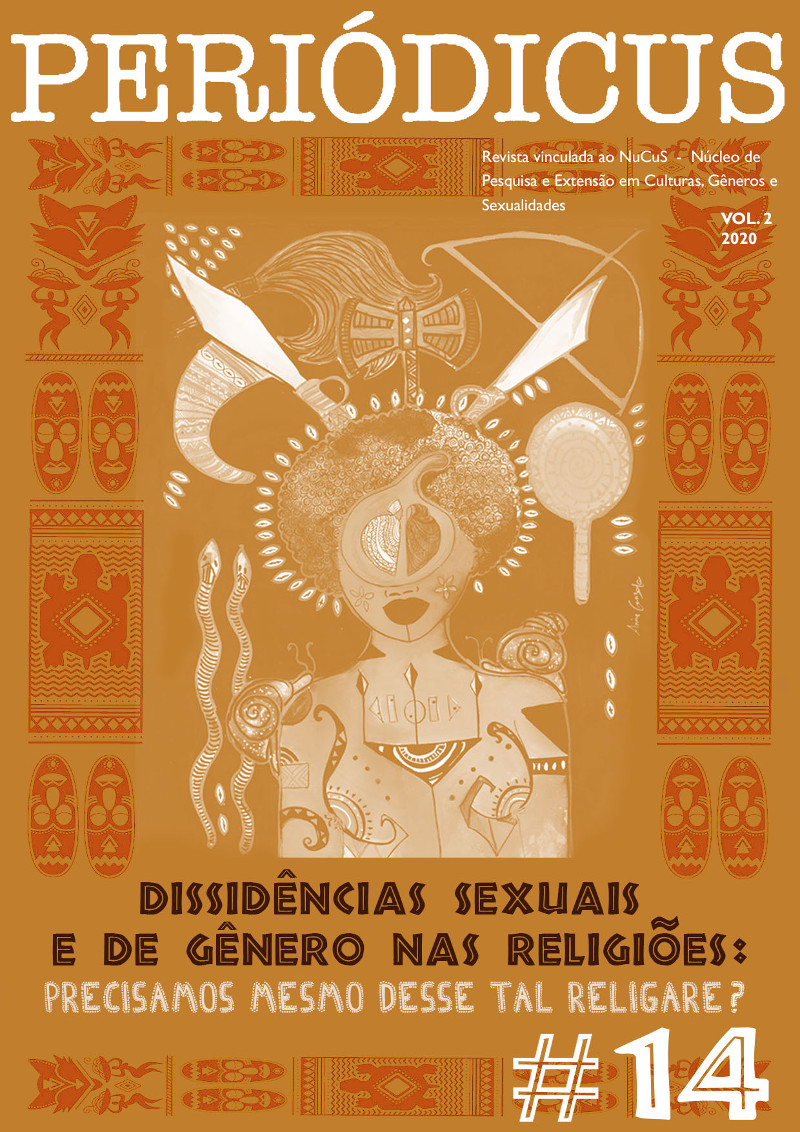Repetitions and breaks between the streets and the scene: a case study on gender performance for the show Sofia-35
DOI:
https://doi.org/10.9771/peri.v2i14.29183Abstract
Abstract: This article seeks to understand how performative acts are articulated in John Langshaw Austin’s critique oflanguage. It analyzes how this theory has been modified based on the thinking of Jacques Derrida, considering how both,
in their convergences and divergences, were essential for Judith Butler’s theorizing about the performativity of the genre.
Based on action research, this article analyzes how art, theater, and performance increasingly serve the analogies,
counterpoints and articulations of performativity in the action of humankind, literature, and everyday representation.
Finally, the study shows how performativity is present in the dramaturgical conception of the Sofia-35 spectacle. In
conclusion, repetition is not only a way of sustaining some types of oppression, but also of redirecting the weight of the
past; that identity is an instrument of regulatory regime; that compulsory heterosexuality as the original disarticulates the rights of the LGBTIQ community, hurting us tirelessly, and that the Sofia-35 show is a project, in which autobiographical
aesthetics helps to question repetitions, patterns, reconfigured experiences for the scene, and the possibility of performative
writing, plural, which creates new signifiers and narrative possibilities.
Keywords: Performativity. Theater. Dramaturgy. Autobiography.
Downloads
Downloads
Published
How to Cite
Issue
Section
License
Copyright (c) 2021 Revista Periódicus

This work is licensed under a Creative Commons Attribution-NonCommercial 4.0 International License.
Autores que publicam nesta revista concordam com os seguintes termos:
Autores mantêm os direitos autorais e concedem à revista o direito de primeira publicação, com o trabalho simultaneamente licenciado sob Licença Creative Commons Attribution Noncommercial que permite o compartilhamento do trabalho com reconhecimento da autoria e publicação inicial nesta revista, sendo vedado o uso com fins comerciais.
Autores têm autorização para assumir contratos adicionais separadamente, para distribuição não-exclusiva da versão do trabalho publicada nesta revista (ex.: publicar em repositório institucional ou como capítulo de livro), com reconhecimento de autoria e publicação inicial nesta revista.
Autores têm permissão e são estimulados a publicar e distribuir seu trabalho online (ex.: em repositórios institucionais ou na sua página pessoal) a qualquer ponto antes ou durante o processo editorial, já que isso pode gerar alterações produtivas, bem como aumentar o impacto e a citação do trabalho publicado (Veja O Efeito do Acesso Livre).







